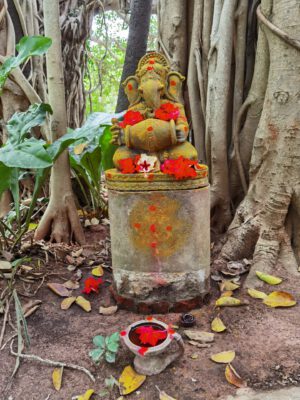Karl Marx said that matter determines consciousness, i.e. the material conditions of existence determine who we are, how we are, what we are. Right down to the platitude that you are what you eat. This material basis follows the rules of the economy. As long as the economy is based on capital, its accumulation creates a superstructure that ideologically dominates the base.
Marx lived in Soho London from 1849 to 1883. Charles Darwin also lived in London, or rather just outside London about 20 kilometers away, at almost the same time from 1842 to 1882. Darwin thought less economically or philosophically, he thought more biologically and proposed a theory of evolution. Variations in reproduction (the concept of DNA did not yet exist) are subject to the competition of nature and those that form a survival advantage prevail. He called this selection, of course.
In the 20th century, these two thinkers significantly shaped the world view of the capitalist Western bloc and the communist Eastern bloc. Their ideas were born in the center of the British Empire, which owed its power and wealth to the exploitation of India. There, in India, the wisdom of Indian philosophy had been suppressed for centuries, especially by the British (the French and Portuguese were probably a little more tolerant)
Teatime
So while Marx and Darwin probably drank Darjeeling from India, the 'Indian Renaissance' was born there, primarily in Bengali. A movement that sought to free itself from the shackles of colonialism and revive India's own ideas. Here, the wisdom of the Rishis, the spirituality of the Vedas became part of modern discussions again. What the British very ignorantly called Hinduism reduced the complexity of Indian philosophy, culture and spirituality to a geographical 'religion'.
Before Darwin died in London in 1882 and Marx in 1883, a little 7-year-old boy named Sri Aurobindo from Bengali arrived in Cambridge in 1879, a good 80 kilometers north of London. Arthur Schopenhauer, who found solace in the Upanishads, had died in Frankfurt in 1860, Friedrich Nietzsche had to give up his professorship in Basel for health reasons in the year of Aurobindo's arrival in England and fell into madness 10 years later. Sigmund Freud studied medicine, Carl Jung was of kindergarten age and Albert Einstein was born that year. In the USA Charles S. Peirce straight "How to make our ideas clear" published. Pierce writes there:
„It is terrible to see how a single unclear idea, a single formula without meaning, lurking in a young man's head, will sometimes act like an obstruction of inert matter in an artery, hindering the nutrition of the brain, and condemning its victim to pine away in the fullness of his intellectual vigor and in the midst of intellectual plenty. „
And finally, Gottlob Frege published his first book "Begriffsschrift, eine der arithmetischen nachgebildete Formelsprache des reinen Denkens" in Jena in 1879. Pierce and Frege laid the foundations for the analytical philosophy of language. However, it is doubtful whether they really helped to clarify ideas. For here, too, there is a reductionist approach. It could be argued that although consciousness clearly benefits from language, it cannot be reduced to it.
In 1893, the year Mahatma Gandhi went to South Africa as a lawyer for 21 years, Aurobindo returned to India at the age of 21 and taught in Baroda. His philosophy, his yoga, became the antithesis to the materialistic, reductionist philosophy of the West.







